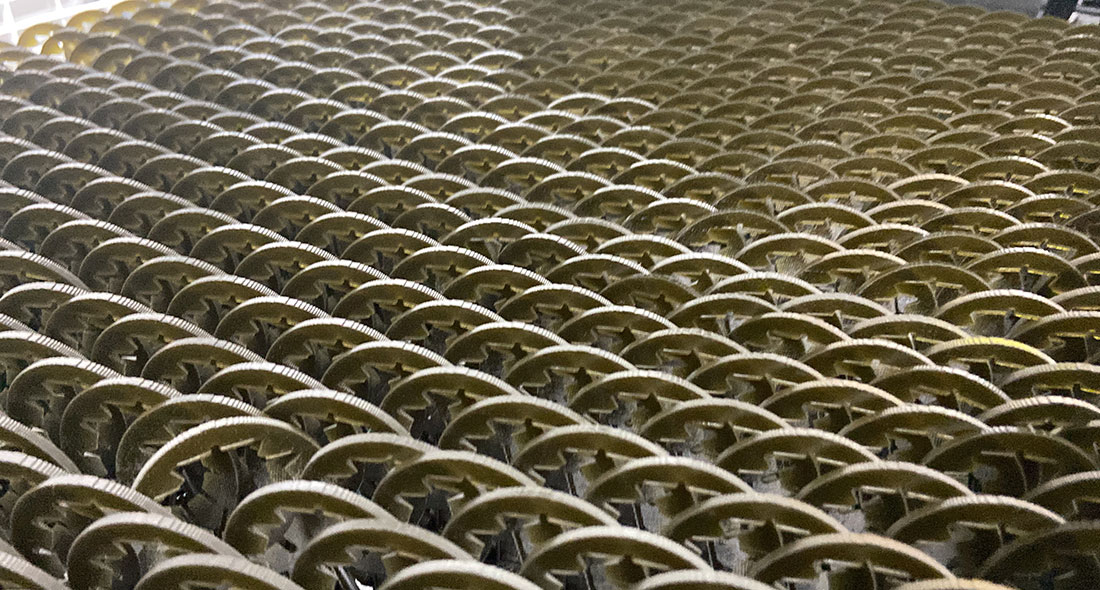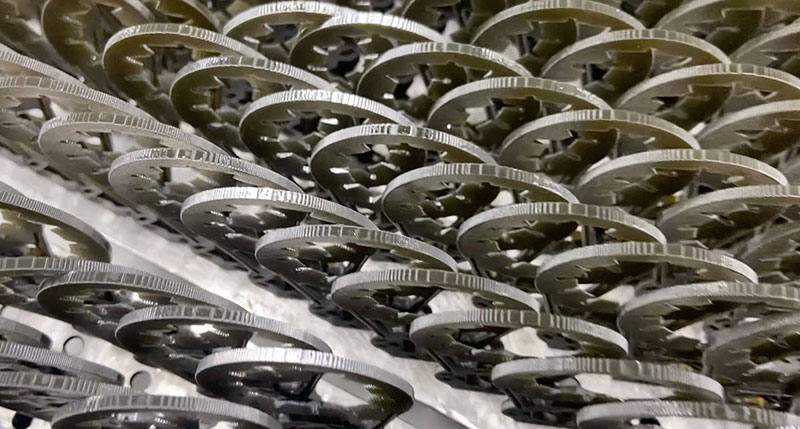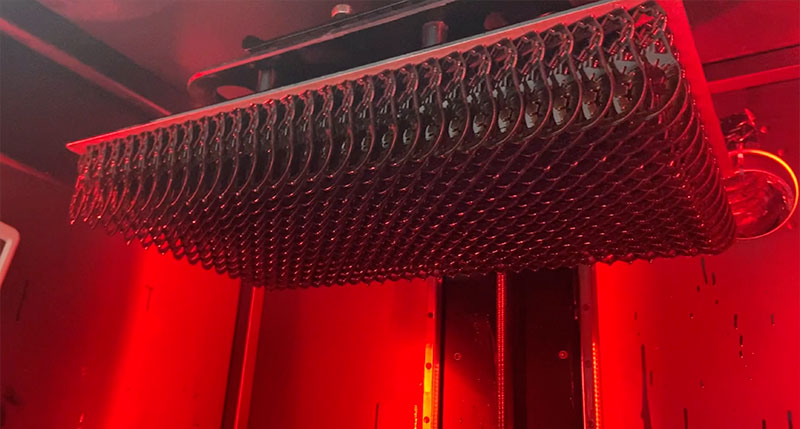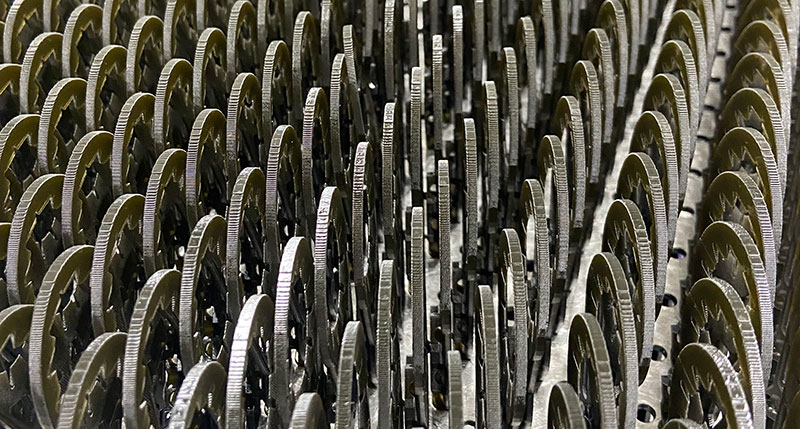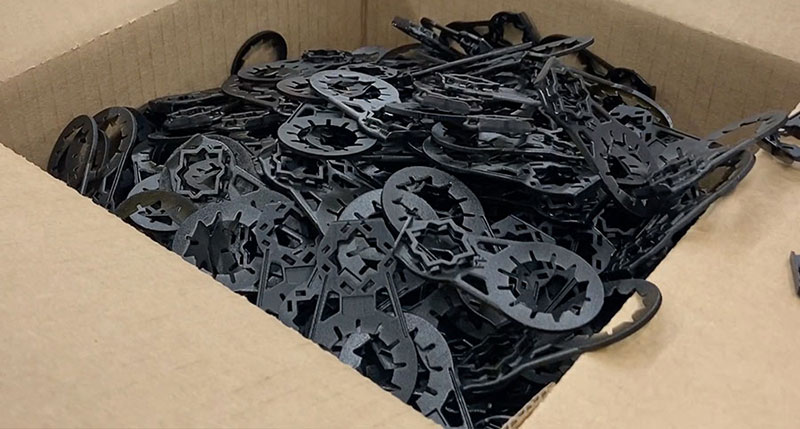Print capacity per day
Parts printed per 8 hour shift using 20 x Liquid Crystal Magnas
Merit3D, a leading additive manufacturing company, is producing 1,000,000 hangers for Adhesives Technology using 3D printing technology. The hangers are required for every project Adhesives’ undertakes, but the production process was halted due to the unavailability of the injection mold tool.
Merit3D’s solution helped Adhesives Technology eliminate the extra cost and wait time for delivery of a new tool and bring manufacturing back to the USA.
3D design process
2 weeks – multiple iterations to optimise cost & performance
3D printer
20 x Photocentric Liquid Crystal Magna
Material
BASF ForwardAM
Ultracur3D® EPD1006 Resin
Hangers per platform
400
Print time per platform
225 minutes
“This is a huge step in the development of manufacturing to replace injection molding as we see large companies replacing their current manufacturing processes with additive manufacturing parts”
The challenge
Access to injection mold tool
Adhesives Technology faced challenges due to world events preventing access to their injection mold tool. The tool was required to produce hangers to keep their epoxy cartridges and mixing nozzles together. The production process was halted, and laying down another tool would have taken too long, making 3D printing the only viable option. However, 3D printing the hangers would typically be prohibitively expensive.
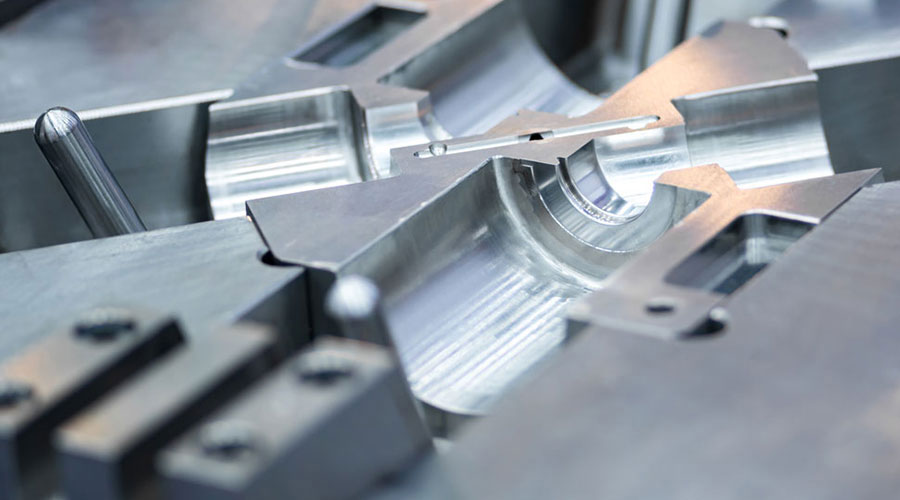
Solution
Liquid Crystal Magna
Merit3D offered a solution to the challenge by modifying the molding design and optimizing it for additive manufacturing. Specifically, the company optimized the design for Photocentric’s Liquid Crystal Magna printers. Merit3D’s iterative redesign process took a total of two weeks, resulting in a design that could be 3D printed efficiently and cost-effectively.
Merit3D used 20 printers to produce the hangers, with 400 hangers per platform, taking 225 minutes per platform. The material used was Ultracur3D® EPD1006 from Photocentric and BASF ForwardAM, which provided the ideal properties and passed the brutal durability test.
Eliminating costly injection mold tool
Reduced waste and carbon footprint
Merit3D’s additive manufacturing solution enabled Adhesives Technology to continue working with the order of 1,000,000 hangers, eliminating the need for a costly injection mold tool. The company’s solution also allowed for customizations and multiple design iterations to optimize the hangers for their specific use. The use of additive manufacturing technology also reduced waste and lowered the carbon footprint.
Photocentric’s Liquid Crystal Magna printers proved ideal for volume manufacturing due to their large format, high surface finish, fast production, cost-effective and functional resins, and low energy consumption.
Merit3D’s successful production on the order of 1,000,000 hangers using additive manufacturing technology demonstrates the potential of this technology for large-scale production. By optimizing the design for 3D printing and utilizing Photocentric’s Liquid Crystal Magna printers, the company is able to produce the hangers efficiently and cost-effectively.
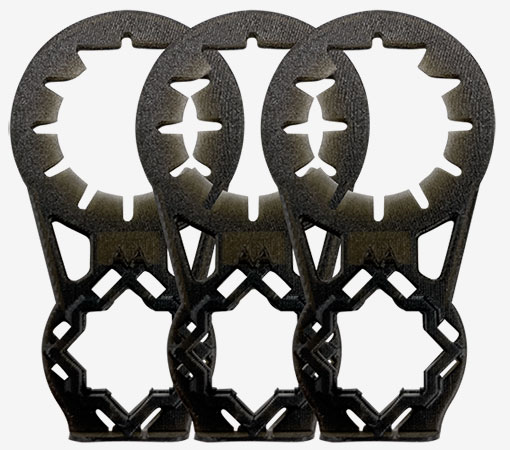
Print capacity per day
Parts printed per 8 hour shift using 20 x Liquid Crystal Magnas
Merit3D, a leading additive manufacturing company, is producing 1,000,000 hangers for Adhesives Technology using 3D printing technology. The hangers are required for every project Adhesives’ undertakes, but the production process was halted due to the unavailability of the injection mold tool.
Merit3D’s solution helped Adhesives Technology eliminate the extra cost and wait time for delivery of a new tool and bring manufacturing back to the USA.
3D design process
2 weeks – multiple iterations to optimise cost & performance
3D printer
20 x Photocentric Liquid Crystal Magna
Material
BASF ForwardAM
Ultracur3D® EPD1006 Resin
Parts per platform
400
Print time
225 minutes
“This is a huge step in the development of manufacturing to replace injection molding as we see large companies replacing their current manufacturing processes with additive manufacturing parts”
The challenge
Access to injection mold tool
Adhesives Technology faced challenges due to world events preventing access to their injection mold tool. The tool was required to produce hangers to keep their epoxy cartridges and mixing nozzles together. The production process was halted, and laying down another tool would have taken too long, making 3D printing the only viable option. However, 3D printing the hangers would typically be prohibitively expensive.
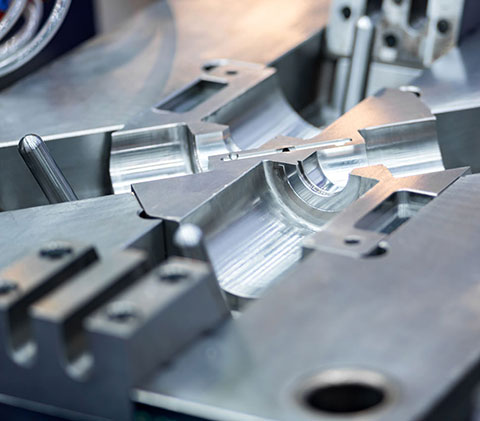
Solution
Liquid Crystal Magna
Merit3D offered a solution to the challenge by modifying the molding design and optimizing it for additive manufacturing. Specifically, the company optimized the design for Photocentric’s Liquid Crystal Magna printers. Merit3D’s iterative redesign process took a total of two weeks, resulting in a design that could be 3D printed efficiently and cost-effectively.
Merit3D used 20 printers to produce the hangers, with 400 hangers per platform, taking 225 minutes per platform. The material used was Ultracur3D® EPD1006 from Photocentric and BASF ForwardAM, which provided the ideal properties and passed the brutal durability test.
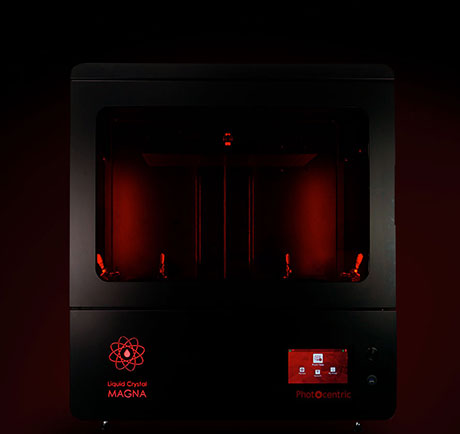
Eliminating costly injection mold tool
Reduced waste and carbon footprint
Merit3D’s additive manufacturing solution enabled Adhesives Technology to continue working with the order of 1,000,000 hangers, eliminating the need for a costly injection mold tool. The company’s solution also allowed for customizations and multiple design iterations to optimize the hangers for their specific use. The use of additive manufacturing technology also reduced waste and lowered the carbon footprint.
Photocentric’s Liquid Crystal Magna printers proved ideal for volume manufacturing due to their large format, high surface finish, fast production, cost-effective and functional resins, and low energy consumption.
Merit3D’s successful production on the order of 1,000,000 hangers using additive manufacturing technology demonstrates the potential of this technology for large-scale production. By optimizing the design for 3D printing and utilizing Photocentric’s Liquid Crystal Magna printers, the company is able to produce the hangers efficiently and cost-effectively.

